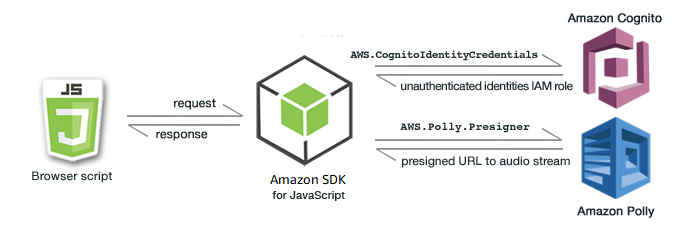What is an SDK?
A software development kit (SDK) is a set of platform-specific building tools for developers. You require components like debuggers, compilers, and libraries to create code that runs on a specific platform, operating system, or programming language. SDKs put everything you need to develop and run software in one place. Additionally, they contain resources like documentation, tutorials, and guides as well as APIs and frameworks for faster application development.
What are the benefits of an SDK?
SDKs offer several benefits across the development process that help developers create applications. They include:
Efficient development
SDKs make development more efficient by providing pre-built components and libraries that can be incorporated into applications. These components save developers significant time previously taken on coding and debugging from scratch.
Faster deployment
SDKs enable faster deployment by providing tools that let developers build and integrate applications quickly. They often support multiple platforms, allowing developers to deploy across multiple devices or operating systems rapidly.
Integration
SDKs provide pre-built modules, components, packages, and tools for developers to build, test, and deploy software applications. They simplify developing, testing, and integration with other systems and services, code samples and tutorials, debugging tools, and code libraries.

Cost savings
SDKs reduce the time and resources needed to develop applications. By providing a library of pre-built components and tools, SDKs enable developers to quickly build out features and functionality. SDKs reduce the time and costs required to create new applications. They also reduce costs associated with deploying and maintaining applications, providing simplified installation processes and updates.
What are some uses of an SDK?
There are several uses for SDKs, including the following:
Mobile app development
SDKs provide developers with tools, libraries, and other resources to develop mobile apps. They include components to debug, monitor, and optimize mobile application performance. Developers can build UI elements, access data, and integrate with third-party services. SDKs also make it simpler to deploy apps across different platforms, such as iOS or Android.
Web development
SDKs provide developers with the tools they need to build the front end of web apps, such as HTML, CSS, and JavaScript, as well as back end resources like databases, server-side programming languages, frameworks, and APIs. SDKs also provide deployment tools for hosting and scaling.
Cloud computing
SDKs provide APIs and libraries to connect to cloud storage services, or to access cloud computing services such as databases, analytics, or machine learning. Developers use them to integrate with a cloud environment in their preferred language of choice.
Internet of Things (IoT)
Developers use SDKs to create IoT applications that interact with sensors, allowing them to create applications that can monitor, collect, and analyze data from the environment. Additionally, you can manage device firmware and software updates more efficiently, as SDKs often provide updates and security patches.
Game development
Gaming SDKs often come with sample code, tutorials, and other resources to help developers create games. 3D graphics libraries, audio libraries, physics engines, artificial intelligence libraries, networking libraries, and development tools are all standard gaming components.
What tools are commonly found in SDKs?
Various software development tools and building blocks are commonly found in software development kits. These include:
API libraries
Application programming interface (API) libraries are collections of code written in a particular programming language, such as Java, C#, or Python. You use APIs to access specific features, software applications, or operating systems like iOS or Android.
Debuggers
Debuggers locate and correct errors in software code, providing real-time access to the internals of software programs. Standard debugging features include setting breakpoints to pause the program, inspecting the values of variables, and checking code line by line.
Compilers and interpreters
Compilers and interpreters convert code written in a programming language into machine-readable code. Compilers generate executable programs, while interpreters directly run programs.
Profilers
Profilers analyze application performance, including memory usage, execution times, and code execution paths. By collecting and analyzing data, profilers help identify areas of a program where optimizations can be made or where issues could happen.
Code samples
Code samples are pieces of example code that developers use to understand and implement specific concepts or features. Code samples show how to use the SDK components like libraries and APIs to build applications.
Deployment tools
Deployment tools enable development teams to deploy their applications to the target platform. This can involve configuring applications for the relevant platform and packaging applications. Examples of deployment tools include installers, automation tools, and deployment wizards.
Integrated development environment (IDE)
An IDE brings together essential tools developers use to write and test software and debug code. An IDE typically includes a code editor, a compiler, a debugger, a project manager, and a version control system.
How does an SDK work?
Using an SDK usually follows three steps:
- Purchasing or downloading then installing a platform-specific SDK.
- Using the SDK to develop your application within an integrated development environment.
- Utilizing the instructions, documentation, code samples, and testing tools included in the SDK for efficient development.

Difference between SDK and API
APIs are a set of programming instructions that enable applications to communicate with each other. APIs provide a way for applications to access and share data, usually through a series of requests and responses. For example, a web API might enable a user to search for a product on a website, and the API will provide the relevant information in response. Developers use APIs to integrate their applications with third-party services, such as social media networks or payment processors. APIs are a communication bridge between two applications. SDKs, on the other hand, bring third-party tools to the developer’s environment.
What should be considered when choosing an SDK?
The SDK you choose should be optimized for your specific use case, not slow down your application, and provide the necessary security measures to protect your users’ data. Some considerations include:
License agreement
It is important to check the SDK’s license agreement to make sure it covers all necessary uses. It must be legally compliant, and there should be no restrictions on use or distribution of the applications you develop. It is essential to understand the limitations of any open-source licenses that may be associated with the SDK.
Security
You have to ensure that your SDK comes from authorized sources and does not contain any malicious or harmful code. The SDK you use should be appropriately documented, supported, and updated regularly to ensure security.
Compatibility
When deciding which SDK to use, it is vital to ensure compatibility with your application’s deployment infrastructure. For example, the SDK should be compatible with the operating systems of all devices you plan to support. It should also support the language your app is written in and provide a way to integrate with other languages.
What SDKs does AWS provide?
AWS provides SDKs for many popular technologies and programming languages. They make it easier for you to call AWS services from within your applications in that language or technology. Additionally, AWS also offers SDKs for AWS SaaS offerings so you can use them more efficiently in your code. Some examples include:
- AWS SDK for .NET provides simplified AWS Services through a set of libraries that are consistent and familiar to .NET developers.
- AWS SDK for Python integrates Python applications, libraries, or scripts with AWS services.
- AWS SDK for Ruby eliminates programming intricacies by providing Ruby classes for many AWS services.
- AWS SDK for Rust simplifies the use of AWS services by providing a set of consistent and familiar libraries to Rust developers.
- AWS WorkDocs SDK removes the complexity of building file collaboration and management capabilities into your solutions and applications, providing full administrator and user-level access to Amazon WorkDocs site resources.
- Amazon Chime SDK allows developers to add real-time voice, video, and messaging powered by machine learning into their applications.
Begin your free AWS trial to start using the correct AWS SDK for your business.






